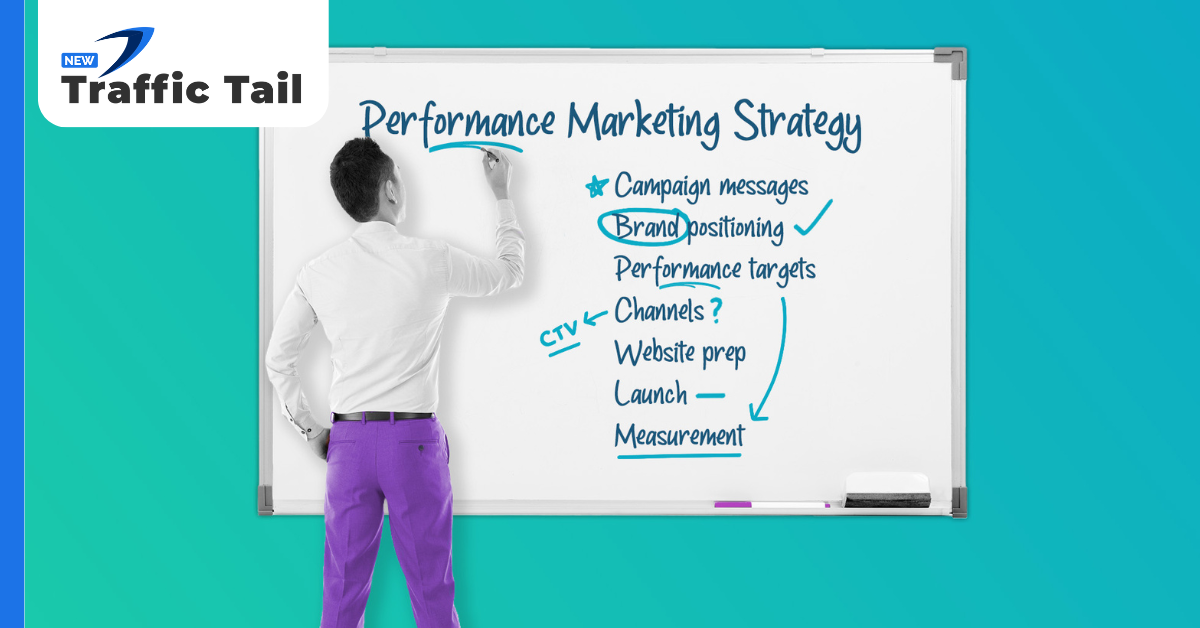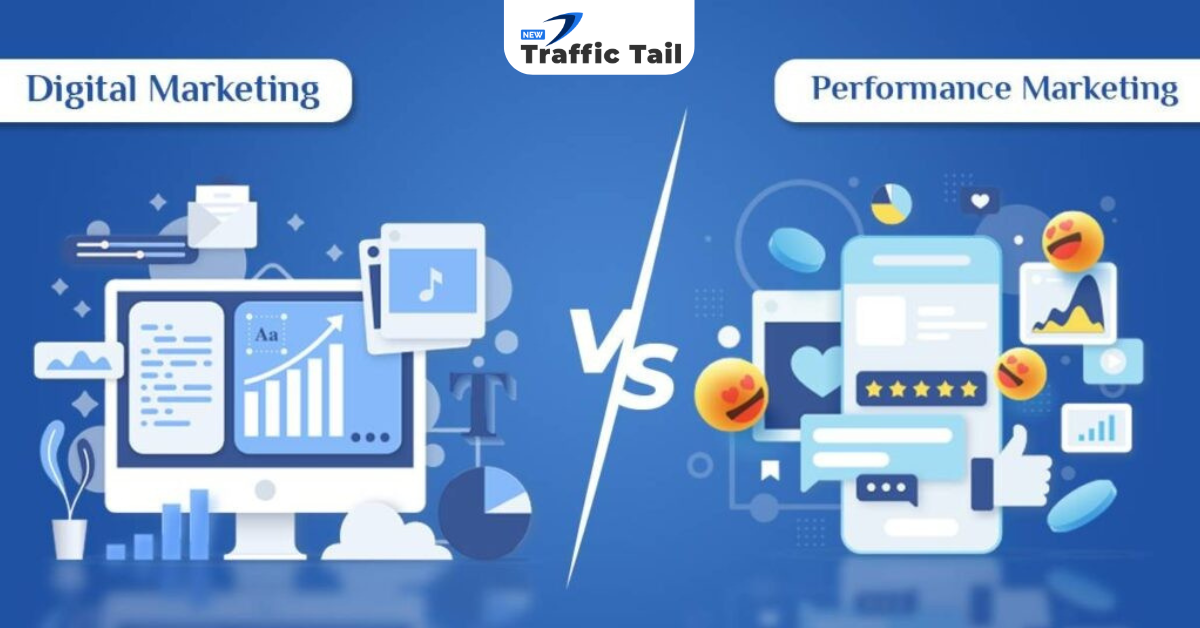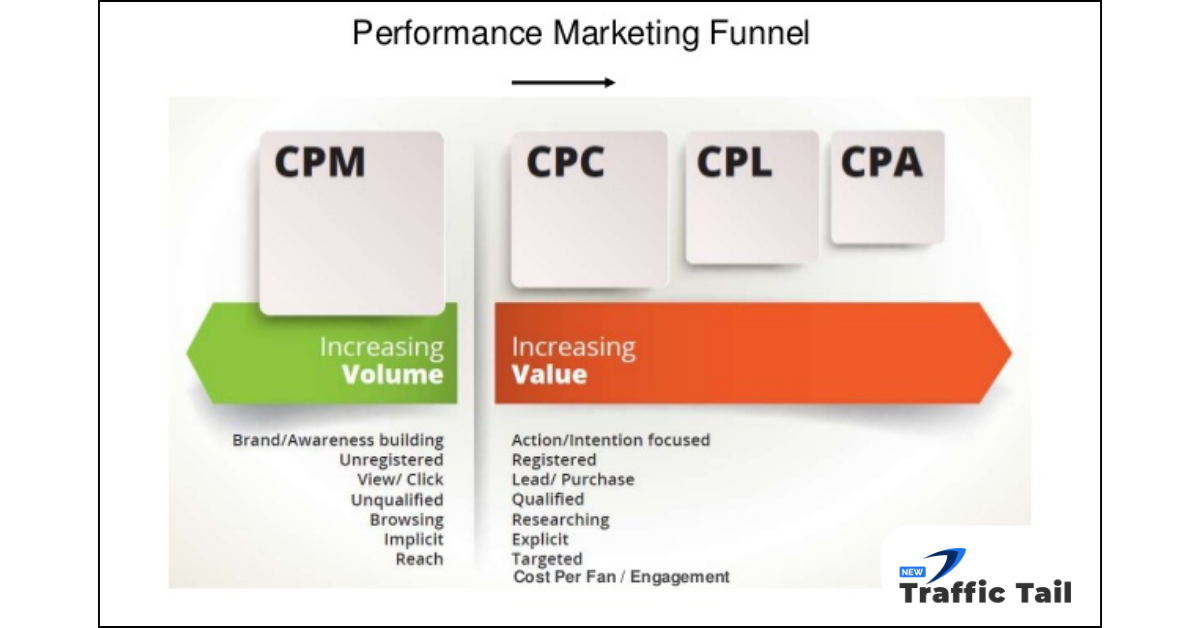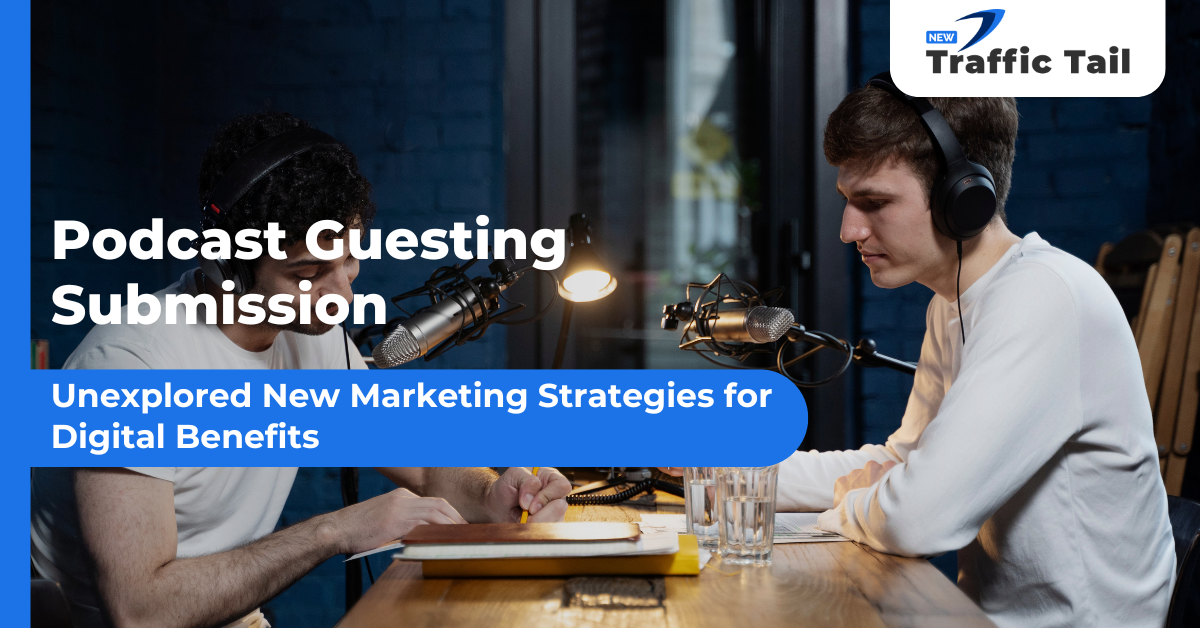Do you want to level up your performance marketing strategy results? If yes, so here is the solution for you.
Undoubtedly, businesses are increasingly using performance marketing as a strategic method to produce measurable and significant results in the ever-changing world of digital marketing.
Performance marketing excels in traditional methods of emphasizing measurable results like leads, clicks, and conversions. With effective performance marketing strategies, advertisers can pay for particular actions, which ensures a more effective use of resources and a clear understanding of ROI (Return over Investment).
Still, unsure how to do that? This blog has everything you should know about. In this, we will delve into what performance marketing strategy is, its types, how it works, tips to build a strong performance marketing strategy, and lots more.
So, why wait? Let’s get going!

What is a Performance Marketing Strategy?
Performance marketing strategy is a digital marketing strategy, essentially a results-driven marketing strategy where advertisers only pay when the results are generated. The results can be anything from filling out a form to getting clicks on the landing page.
As compared to the traditional marketing approach, there is no guarantee you will get returns. You can only make estimates by monitoring performance and making adjustments accordingly.
But in performance marketing, you can expect accurate results with your paid campaigns. So, what kind of results we are talking about? Here are some measurable results:
- Number of app installs.
- Ad views.
- Demo downloads
- Social media engagement
- Sales
- Page clicks
- Ad clicks
With such accuracy, marketers can make a quick and the best decision, whether it is for changing keywords, marketing strategy, etc.
Ultimately, performance-based marketing is the best strategy to drive growth.

Performance Marketing Vs Digital Marketing
While somewhat related, performance marketing and digital marketing are different.
Performance marketing is a more specialized strategy within the umbrella of digital marketing, whereas digital marketing is a more general word that includes all online marketing initiatives.
Performance marketing is frequently linked to a more data-driven and ROI-focused strategy, which attempts to directly link marketing activities to quantifiable results. Performance marketing is especially focused on optimizing campaigns for certain, quantifiable outcomes, although digital marketing tactics can also involve branding, content production, and other forms of engagement.
Not clear, yet? Here is an example to clear your doubt about performance marketing vs digital marketing.
Performance Marketing
Let’s consider that your company wants to drive immediate, measurable results in terms of website visits and conversions.
So, for successful results, you create targeted ads (Bing or Google) that appear only when users search for the specific keyword related to your ad or campaign.
Now, how the results will appear? The performance can be measured through CTR, conversion rate, and return on ad spend.
Digital Marketing
Imagine your company aspires to become recognized for its brand in its sector and take the lead in thought leadership.
So, you produce excellent industry-related blog entries, articles, and shareable content for their website and social media channels.
Now, how the results will appear? Metrics like website traffic, social media interaction (likes, shares, comments), and brand mentions are used to gauge the effectiveness of the digital marketing campaign. Even if these indicators might not result in sales right away, they nonetheless have an impact on the brand’s reputation and overall internet presence.
So, with that said, performance marketing can be used for smaller-scale initiatives that offer quick information that can be used to guide long-term marketing plans.

How Does Performance Marketing Strategy Work?
Performance marketing has become one of the most popular promotional marketing techniques. It’s a kind of advertising where publishers or affiliates get paid for the conversions they bring in via different channels, like SEO. For companies, this seems intriguing, but this is how it operates:
Step 1: Identify Target Audience
The first step is to decide who the business’s target market is. This is important because it clarifies how companies can connect with potential clients. After determining who your target market is, you must develop an alluring offer to encourage them to perform the needed action.
Step 2: Create Personalized Campaigns
It is essential to recognize that performance marketing is not a universally applicable strategy. Your campaigns must be customized to meet your unique business requirements. This implies that you must develop several campaigns, each with a distinct goal, target market, and product.
Step 3: Make Collaborations
Finding publications or affiliates who are eager to market your offer is the next stage. These publishers or affiliates could be influencers, bloggers, email marketers, or anybody else with a sizable fan base inside your intended demographic. Finding affiliates who genuinely want to promote your service to their audience and who share your vision is essential to finding the proper partners.
Step 4: Develop an Effective Performance Marketing Strategy
After determining who your affiliates are, you must give them all the resources they need to spread the word about your offer. This covers any graphics, landing sites, tracking links, and additional resources they might require to successfully market your offer.
Step 5: Measure Results and Optimize
Tracking the effectiveness of your campaign and making any adjustments is the last step. This entails reviewing your data, determining what functions well and poorly, and implementing the required adjustments to raise the effectiveness of your campaign.
To find out which aspects of your campaign are working well and which ones require tweaking, you must regularly run A/B tests. Driving performance and optimizing results in performance marketing initiatives requires the implementation of a well-crafted marketing plan, such as a business-to-business marketing strategy.
Top Benefits of Implementing an Effective Performance Marketing Strategy
Now you have understood how performance marketing works. It’s time to explore the benefits of implementing an effective Performance Marketing Strategy that may influence you to jump on this marketing strategy quickly.
-
Measurable Results
One of the greatest benefits of performance marketing strategy is marketers can quickly measure campaign success. In fact, you can track a customer’s full click-to-consume journey to determine where to invest more, with which partners, and through which channels, to get better outcomes.
-
Better Insights
Another benefit of a performance marketing strategy is you can get quick and improved insights into successful campaigns. For instance, you can monitor: sales funnel advancement, CTA engagement, and social media ad performance.
Thus, it is easier for marketers to make precise, data-driven decisions that will offer long-term success the more information they have at their disposal.
Furthermore, you can track all of this data from a single dashboard using digital marketing tools, which provides you with a more comprehensive picture of the success of your campaigns overall.
-
Lower Risk
Compared to alternative strategies, performance marketing strategy has less financial risk from a business standpoint. For starters, you may increase your chances of operating successful campaigns by basing decisions on accurate data. Plus, you can increase your return on investment over time because you won’t waste money on an unsuccessful campaign.
-
Transparency in Results
One of the main advantages of a performance marketing strategy is transparency. As a marketer, you are aware of your goals. You’re more likely to live up to your client’s expectations because you know exactly what needs to be done to achieve the desired results.
How to Measure Results of Performance Marketing Strategy?
Performance marketing revolves around returns on investment (ROIs) since each action can be monitored and evaluated by key performance indicators (KPIs). These critical metrics—like click-through rate, page views, and sales—are essential for assessing and improving performance.
For your benefit, we’ve outlined some of the most popular measures and KPIs below so you can better grasp performance marketing pricing.
CPA (Cost per Acquisition)
If your final goal is to drive sales, you can measure the success of your campaign by the number of sales and pay your partners every time someone buys a product that is directly traceable to them.
CPC (Cost per Click)
If your final goal is to drive clicks to your pages, you can measure the success of your campaign by the number of clicks and pay your partners every time someone clicks.
CPL (Cost per Lead)
If a user fills out a form because the partner encouraged them to do so, you would be paid every time you obtain additional information about them. After that, you would continue to nurture the lead to turn them into a customer.
CPM (Cost per impression)
It is often known as cost per mile. Your payment would be determined by the number of impressions you receive from an advertisement that is shared by a partner or appears elsewhere. Typically, CPM awards payouts after 1,000 impressions.

4 Effective Tips for a Successful Performance Marketing Strategy
To get success in performance marketing, here are the tips you must follow:
1. Create an Engaging Landing Page To Get Maximum Leads
A poor landing page might discourage visitors from converting and clicking through. Furthermore, this can discourage collaborators from wanting to support your business and collaborate with you.
Therefore, as an advertiser, you should examine your website for any potential issues a visitor can encounter and make sure you have an attractive offer for your affiliates.
Test the user’s journey from the landing page to the shopping cart. In addition, frequently update content and identify underperforming landing pages, audit links, and offers.
2. Identify Your Traffic Sources Carefully
In performance marketing, ensuring that the traffic is coming from reliable sources. Customers may be discouraged from returning and may think twice about trusting you as a brand if you are being promoted by less-than-reliable sources.
So, work with affiliates who will send relevant traffic to your website rather than producing a ton of low-quality traffic.
3. Keep Testing and Measuring KPIs
Testing and measuring are crucial for a performance marketing strategy to be successful, as many skilled performance marketers are aware of. To get a better idea of what is and is not working in performance marketing, experiment with various methods and strategies for click-through rates, conversion rates, AOVs, and traffic optimization by conducting A/B testing.
4. Don’t Skip Complains
If your goal is to build a powerful brand, then publishers and businesses must go by the given guidelines to accomplish this.
- Federal Trade Commission (FTC)
- General Data Protection Law (GDPR)
- California Consumer Privacy Act (CCPA)
Make sure your company complies with all of the rules by carefully reviewing them to avoid any future losses.

Top 3 Performance Marketing Agencies in India
Now that you have understood everything, so you might be looking for an expert who can create a successful performance marketing campaign for your company. In that case, we have listed the top 3 performance marketing agencies in India that are renowned for successful growth.
1. New Traffic Tail

New Traffic Tail is one of the best performance marketing agencies in India, renowned for delivering top-notch success to their clients. They have a team of enthusiastic, knowledgeable, and trained experts who work nonstop to make sure your business is seen as a leader in the digital space.
Furthermore, they believe in helping you realize your goals by offering the best digital marketing services to advance your company in line with your vision. Despite their awesome performance marketing services, New Traffic Tail offers customized solutions tailored to your needs. They provide a reliable business partner who can assist you on each step you make for incredible growth.
If you want to achieve ultimate growth for your business, contact New Traffic Tail today!
2. Brandconn Digital

Brandconn Digital is also a leading performance marketing agency in India with a 75% success rate. They have a team of reliable partners who can help you transform your digital journey into a huge success. You can choose Brandconn Digital for website design, digital marketing services, SEO, and website development.
3. PPN Solutions Pvt. Ltd.

PPN Solutions is the third top-performance marketing agency in India that primarily focuses on results-driven digital marketing. They focus on a strategic approach based on the target nation and audience to create a personalized plan for each client. Every customer receives undivided attention, personalized service, and a robust support system.
Closing Thoughts
Performance marketing can be a powerful marketing technique to get accurate insights into ad campaigns that are much more reliable to alter marketing strategies to achieve successful business growth. If you’re interested in building a successful performance marketing strategy, then must get in touch with an expert for quality results.
Additional Reading
FAQs
Q1. Should you choose performance marketing services?
If the audience you’re targeting is extremely engaged and values characteristics like authenticity, as does Generation Z, so brand marketing might work better. However, if their primary focus is on quick, concrete value propositions, then a performance marketing strategy can be worth giving priority to.
Q2. Are there any cons of performance marketing?
Yes! There are a few cons of performance marketing, such as:
- You may forget long-term priorities.
- High risk of fraud.
- Results may be delayed.
Q3. Do I need to hire a performance marketing agency to perform successful campaigns?
Yes, you should hire the best performance marketing agency renowned for delivering successful insights into campaigns. So, you can get growth to the business.
Q4. What are the best performance marketing channels?
Here is the list of best performance marketing channels:
- SMS
- SMM
- SEM
- Affiliate marketing
- Email marketing
- Paid ads
- Content marketing
- Organic search




